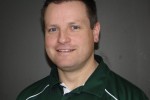The Internet: Closing or Opening Horizons?
Oct 29th, 2012 | By Marc Applebaum
Merleau-Ponty (1968) wrote that questioning does not “fill in the blanks” in our knowledge. Instead, “the questions are within our life, within our history. They are born there, they die there, if they have found a response, more often than not they are transformed there” (p. 105). For phenomenologists, questions of any depth are never
[continue reading…]



